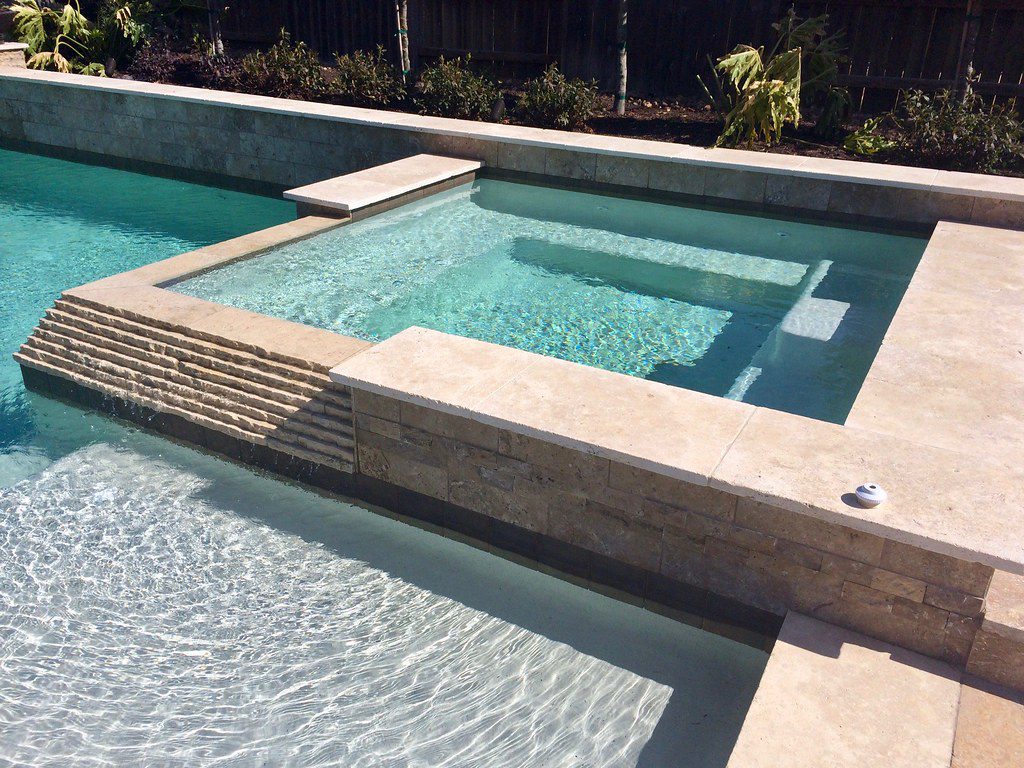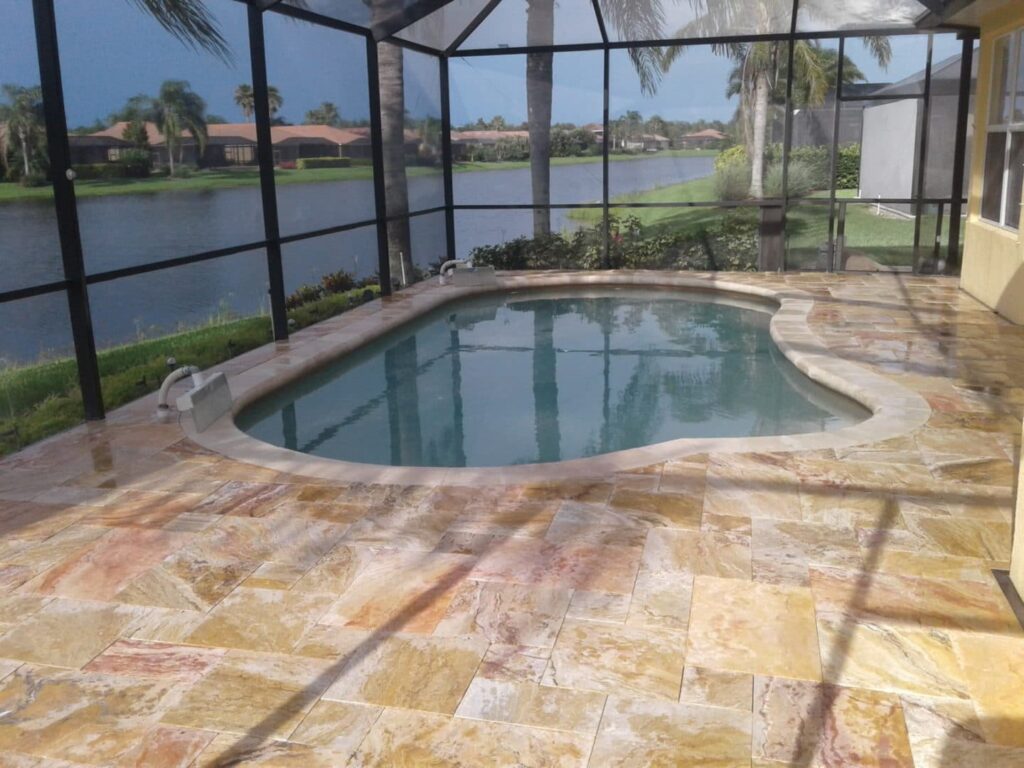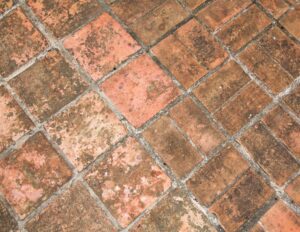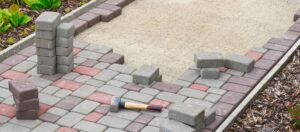
Travertine is a staple in many outdoor living areas and hardscape projects. Especially next to pools, since it’s a porous stone. As it often goes with natural stones, there’s always the debate of sealing or not sealing. So, can you seal travertine pavers?
The answer is yes, you can. Not only you can, we highly recommend you do so. Travertine can potentially work without sealing, but it’s a risk we don’t recommend you take.
When thinking about sealing travertine, there are several factors you need to consider, from the location of your installation to what kind of activities you’re going to do around said pavers and even the type of sealer you should use.
Let’s discuss these factors before giving you a definitive answer to help you make the most informed decision possible.
Jump to:
Can You Seal Travertine Pavers? – The Cons
As we mentioned before, travertine is a good choice to use alongside pools. This is due to the fact that travertine is a naturally porous stone that absorbs water easily, which is important to avoid slippery surfaces around pools.
It has natural traction that is very useful if many people, especially kids, walk or run around your pool. Depending on the sealing that you choose to apply, that traction can be lost, which in turn will make your pool area slippery.
Also, although risky, travertine can work without the sealing, so the investment may not be worthwhile at the moment if you’re working on a budget. Still, sealing travertine is highly recommended and is not something you should skip without a really good reason.
Can You Seal Travertine Pavers? – The Pros
Of course, sealing is always recommended if you want to protect your pavers from stains, sun-bleaches, and any kind of surface aesthetical damage.
Also, with sealing, mildew won’t be a problem. They will still appear, but they are easily cleaned on a sealed paver. On unsealed pavers than can get between the cracks and cause serious damage.
If you host parties around your travertine pavers, for example, sealing might be an excellent idea. The sealing can protect it from any foods or drinks that might spill on it.
Again, depending on the sealing you choose, it can even help bring more color to your pavers and make them more vibrant.
Types of Sealers
As you can already tell, the type of sealer you’re going to use can actually weigh on your decision. The difference between a good and bad choice may lay on the sealer you choose. Let’s talk about the types of sealers and their different applications.
- Penetrating Sealers
This type of sealer doesn’t leave a film on top of the surface. They maintain the original touch of the stone by seeping into it instead of resting on top of it. - Enhancing Sealers
Enhancing sealers are used when the objective is to make the natural colors of the stone more alive without leaving the gloss effect behind. - Topic Sealers
These sealers form, essentially, a pellicule on top of the surface, leaving a very glossy appearance in the process. They need to be reapplied constantly and can easily wear off on surfaces with high usage.
Both the penetrating and enhancing sealers are good choices to use on your travertine. They can protect the surface while still leaving the natural feel of the stone.
Both types come in standard and premium quality. The premium one is considerably more expensive, being used on a professional level in many applications.
How to Seal Travertine
If you choose to seal your travertine, the process is very easy and you can potentially do it yourself over the course of a long weekend or holiday.
Sealing is always recommended at the moment of the installation, but if this ship has already sailed for you, you need to make sure your pavers have no stains on them, otherwise, the sealer will make those stains permanent.
The pavers need to be clean of any debris and free from any other substances on their surface, so a good powerwash might be a good idea before applying the sealer.
After cleaning, is best to wait at least two days for them to dry completely, maybe even three days. Once they are dry, they are ready to be sealed.
There’s really no mystery to it. The sealers usually have instructions and following them is simple enough. They will instruct you to apply the sealer evenly across all the pavers, removing the excess as you go. It is recommended that you apply two coats of sealer for better results.

Final Thoughts
The question: can you seal travertine pavers? The answer: yes, you absolutely can.
As we said, not only you can, but it is very much recommended, as there are more pros than cons to it. Sealing will make your travertine last longer and be more protected against all sorts of surface damage.
It is very important that you pick the right kind of sealer for the job. The wrong sealer can affect the functionality of the travertine. Opt for penetrating sealers, with enhancing sealers being a close second.
If all these options and considerations seem too complicated for you, why not ask for the help of professionals to help you make the best decision?
If you’re around Sarasota, FL, you can find the best professionals on the field at JSBrick. With 20 years of experience, they are ready to help you with any hardscape needs you might have.
Give them a call right now at +1 941 586 9140 for a free estimate on your project.



